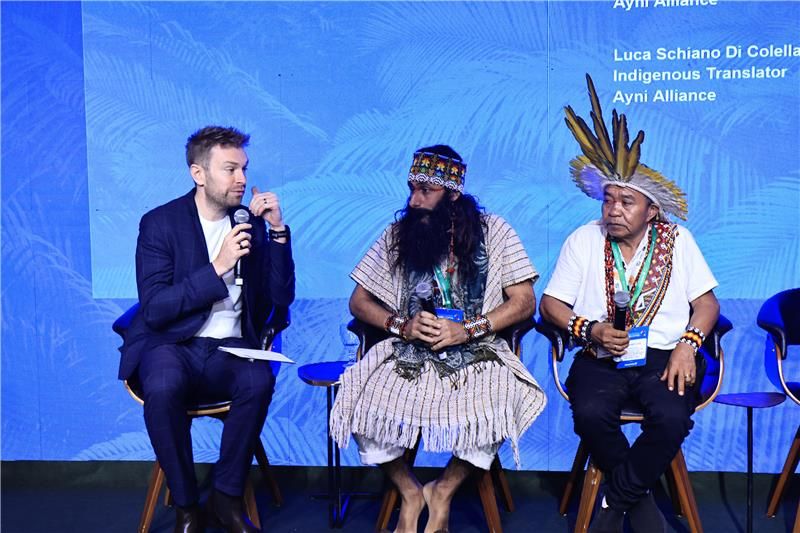Uniting Knowledge Systems: Indigenous Leadership at COP30
A reflection of how COP30 underscores the importance of uniting with Indigenous peoples to drive meaningful climate solutions.

COP30 has seen the largest participation of Indigenous leaders to date, a pivotal milestone given that Indigenous Peoples protect around 80% of the world’s biodiversity.
In Brazil, Indigenous mobilisation at COP30 has generated transformative impact. The Brazilian government’s commitment to creating ten new Indigenous territories represents a landmark win for cultural sovereignty and environmental protection. This momentum reflects the spirit of a global mutirão, a collective effort that must extend far beyond COP30 to deliver lasting climate transformation.
What has unfolded in Brazil is the beginning of change: one where worldviews converge, where indigenous voices stand alongside policymakers, and where voices of the private sector, youth, academia, civil society are heard. With Brazil expanding Indigenous protected areas, the world is witnessing a positive shift toward climate action rooted in justice, knowledge, unity and understanding.
The message from Indigenous leaders at COP30 is clear: Indigenous voices are climate leaders, and we must unite. Indigenous peoples know the earth; they know nature. As Indigenous governance and cultural revitalization strengthens environmental policy outcomes, COP30 has acted as a bridge connecting private-sector discussions with Indigenous knowledge. To truly accelerate transformative climate action it is time to engage in two-eyed seeing:
“To see from one eye with the strengths of Indigenous ways of knowing, and to see from the other eye with the strengths of Western ways of knowing, and to use both of these eyes together …”.
During the Climate Action House Leader’s Lunch Sessions on Nature and Biodiversity Day, we had the honor of hearing an Elder of the Yawanawa Tribe speak on the vital need to unite with each other and the wisdom of the forest to co-create solutions. Moving forward, climate action must be guided through this shared vision, to navigate positive and transformative solutions that prioritize nature’s salvation with policy and the private sector.
Watch the full discussion on bridging climate policy and Indigenous leadership here: https://events.climateaction.org/climate-action-house/dashboards/5/nature-biodiversity/
